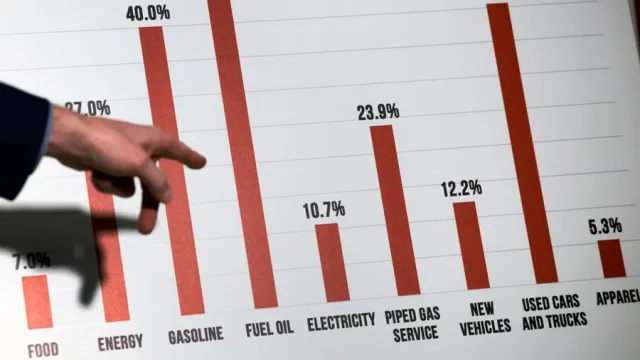According to recent data released by the Ghana Statistical Service, inflation experienced a slight uptick in January 2024, reaching 23.5 percent, marking a return to its upward trend after five consecutive months of decline.
Government Statistician Samuel Kobina Annim announced on Wednesday, February 14, 2024, that annual inflation had risen from 23.2 percent in December.
The increase in year-on-year inflation was primarily attributed to a significant surge in non-food items, including housing, clothing, and transport. Non-food inflation rose to 20.5 percent in January 2024, up from 18.7 percent in December 2023.
However, food inflation continued its downward trajectory, albeit marginally, dropping to 27.1 percent in January 2024 from 28.7 percent in December 2023.
In terms of month-on-month inflation, food inflation stood at 1.6 percent, while non-food inflation was estimated at 2.4 percent.
Seven divisions reported inflation rates higher than the national average, notably Alcoholic Beverages, Tobacco, and Narcotics (38.5 percent); Personal Care, Social Protection, and Miscellaneous Goods and Services (32.0 percent); and Restaurants and Accommodation Services (29.2 percent).
Regarding food inflation, ten out of fifteen Sub-Classes registered inflation rates exceeding the overall food inflation of 28.7 percent, with Cocoa Drinks (73.5 percent) and Tea and related products (71.2 percent) among those recording the highest rates.
Regionally, the Eastern Region recorded the highest inflation rate at 37.1 percent, driven primarily by food prices, while the Greater Accra Region reported the lowest rate of inflation at 18 percent.









































